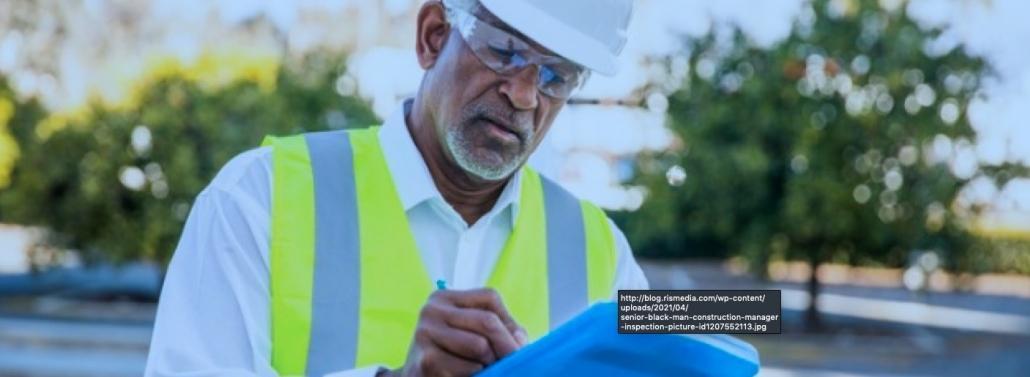What to Expect From a Home Inspection

Do you know what to expect from a buyer’s home inspection? When your property is on the market, expect a home inspection to take place. This is positive, as it means someone is willing to pay to have it checked over, and then move forward with the purchase.
No house, especially an old house, is perfect—and the potential buyer is just taking good advice. If they find anything seriously wrong, they may ask you to fix it, or alternatively, they may decide not to proceed. Remember, the purchaser is looking to identify major defects, and as far as you know, there aren’t any.
Understanding what’s going to take place at a home inspection can make you better prepared for any potential outcome. Having a home inspection checklist whether you are a buyer or seller can be extremely helpful. Here’s what to expect at a home inspection:
When Does the Home Inspection Take Place
There are two types of home inspections. The buyer’s inspection takes place once an offer has been accepted on the home, usually within 10 days of the contract being signed. This will become part of the due diligence period.
The buyer will also have an opportunity to inspect the house once again before closing. This is what’s referred to as the “final walk-through.”
The home inspection entails hiring a professional home inspector who will typically spend two to four hours looking over the home depending on its size.
Home sellers may also choose to have their home inspected prior to putting it up for sale. Doing so is what’s called a pre-listing home inspection. By doing so, sellers can discover if there are any significant issues that could cause the sale to fall through.
A seller can make necessary improvements, avoiding any problems down the line. It also gives the owner peace of mind to move toward the process knowing all is in order.
Home inspections can be crucial for both buyers and sellers. It is essential to note that home inspections are not the same thing as a bank inspection. The lender granting the mortgage to the borrower will send out an appraiser who will look at both the interior and exterior of the property.
The lender will be looking at various features of the home to determine market value. While an appraiser could note a defect in a property in their appraisal report, their major function is not to report on property condition.
What Happens During the Inspection
A home inspection can take around three hours to complete for a house of average size. Following the inspection, the report will be written up over the next day or two.
While the inspector is there, he/she goes over the house inside and outside, recording major defects and hazards both in and around the house. Any major safety issues like faulty electrical boxes, significant foundation cracking, water penetration and a whole host of other issues will be identified.
A home inspector can and does inspect all types of properties including condos, townhouses, mobile homes, modular houses and traditional housing.
Who Is Present During the Home Inspection
The typical attendees at a home inspection include the buyers, the buyer’s agent and possibly the listing agent. It is rare for a seller to be present at a home inspection.
If you are purchasing the house, it will be advantageous to see first-hand what the inspector finds. It is helpful for agents to attend to represent their respective parties. They are there to understand any potential issues, not to be active participants or disagree with the inspector’s findings.
Many REALTORS® have seen it all before and will be useful in normalizing the experience for the buyer who may be a bit nervous about it all. If you are the buyer, try to attend, as it is going to help to answer your questions about the structure and hazards. The inspection can be a really educational process.
Main Things a Home Inspector Focuses On
- Roof condition and any potential existing damage
- Issues like major cracks could show the sinking of the house
- Any water lying around and poor exterior drainage
- Any water damage internally
- Any damage to the electrical system or things that are not up to code
- Poor plumbing, low water pressure and any leaking
- Structural damage caused by termites or pests
- HVAC issues
What the Inspector Is Not Looking For
A home inspector does not look for cosmetic items such as stains on the carpet. Simple cosmetic work is the reason why the house is not more expensive, so the purchaser needs to see the difference between structural flaws and minor work that a weekend with a paintbrush or Resolve can fix.
How to Prepare for a Home Inspection
When you know you will be having an inspection, there are a few things to prepare for the inspector:
- Have receipts of any updates to major components you have done. For example, you may have a new roof, and having the receipt available is helpful.
- Get rid of clutter from the attic so that the inspector can see the roof space. You can hire a junk removal company if necessary.
- Make sure any outbuilding is unlocked so it can be inspected
- Keep the dog tied up. You don’t want him to bite the inspector
- Check to see that there are no light bulbs “out”
- Replace air filters on your HVAC system
- Make sure foundations are visible
- Windows must open easily with no cracks or broken sashes
- Get trees that overhang the house trimmed back, in addition to shrubbery that’s against the house
Should I Get a Pre-Listing Home Inspection?
Having a pre-listing home inspection is an excellent idea, as it will prepare you for what the buyer will be doing anyway. You might be able to identify problems beforehand that might cause trepidation with a buyer. Making the improvements could mean the difference in your sale not falling through.
Once you have your pre-inspection, give the agent a copy so that they can show it to prospective buyers. This is really important for those with an older house.
Are There Reasons Not to Have a Pre-Inspection?
There is little reason not to have a pre-listing home inspection unless you are located in a state where a seller must disclose all problems with a home. If you don’t intend to repair the issues you find, it wouldn’t make sense to go through a pre-sale inspection.
Some states are non-disclosure, meaning it is “buyer beware,” and a seller does not have to disclose known problems.
Be Prepared to Explain If the Buyer Walks Away
Following a home inspection when the buyer walks away, it will be important to be honest about why this happened. If there is some kind of problem in the home, you’ll need to disclose it when someone asks.
Homes coming back on the market after a home inspection always raise red flags. You will be prepared to have an honest explanation of why.
The Buyer May Have Home Inspection Requests
In real estate markets that favor buyers, be prepared to make concessions after the inspection takes place if there are problems found. A buyer may request some kind of credit or ask you to lower the price so they can make the repairs themselves.
Sometimes a seller will also disagree with a home inspector and ask for their own expert to come in for a look. It is possible the problems could be overstated. Home inspectors are human and do make mistakes just like the rest of us.
The Home Inspection Is Not for Making a Punchlist
The purpose of your home inspection is to find any glaring defects to structural, mechanical or safety elements. The home inspection should not be used to present the seller with a punchlist to make their home perfect.
Having a checklist as a seller can be helpful. If you have done a pre-listing inspection, go through it and knock off as many items as you can handle. The better condition your home is in, the greater chance for more money in your pocket and fewer surprises.
A home inspection is one of the most substantial hurdles in a real estate transaction. Whether you’re a buyer or seller, it makes sense to prepare for the outcome whether it be good or bad. Hopefully you have found the home inspection guidance here to be useful.
Bill Gassett is a nationally recognized real estate leader who has been helping people buy and sell MetroWest Massachusetts real estate for the past 33 years. He has been one of the top RE/MAX REALTORS® in New England for the past decade. Gassett works for RE/MAX Executive Realty in Hopkinton, Massachusetts. In 2018, he was the No. 1 RE/MAX real estate agent in Massachusetts.
